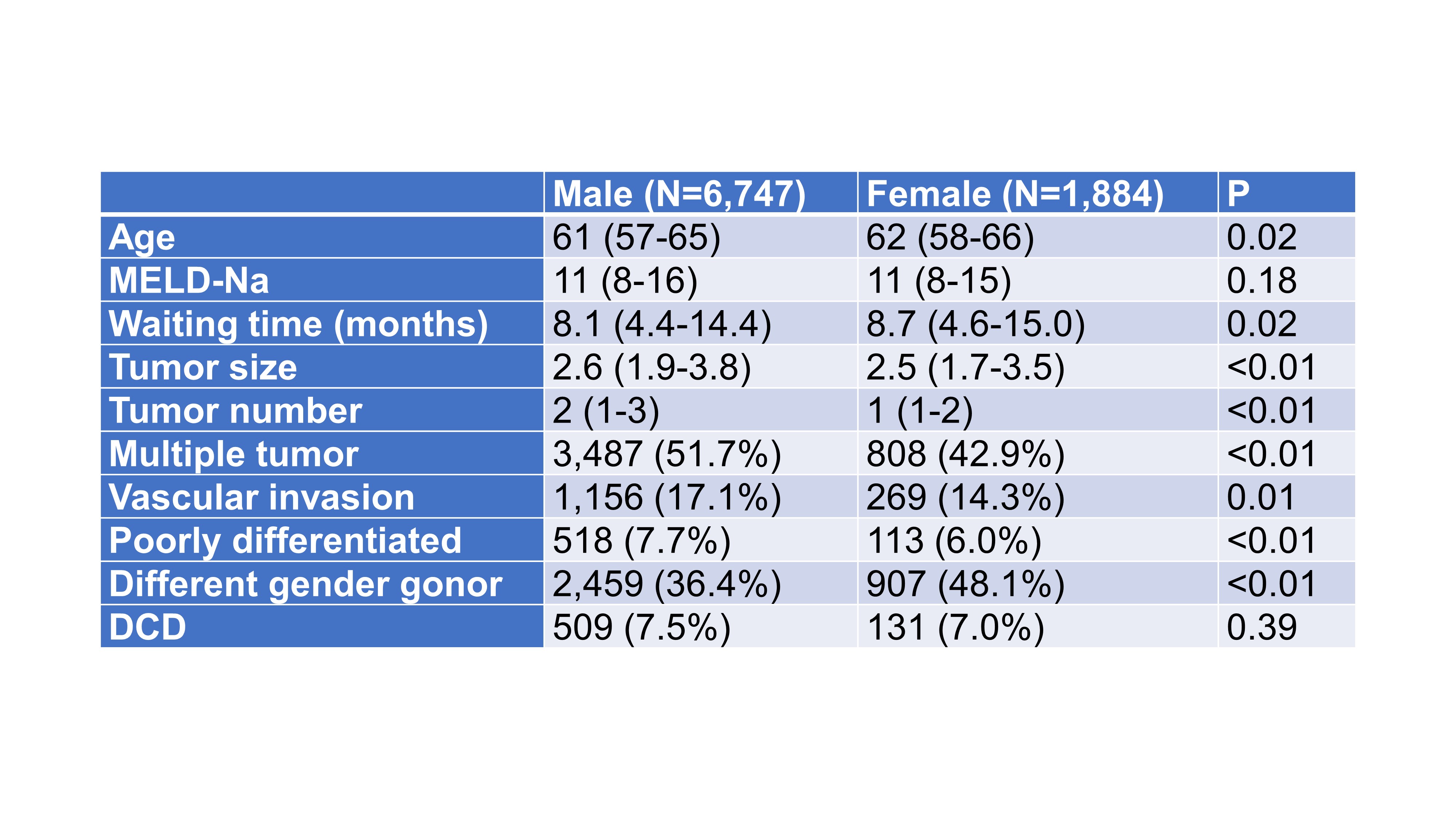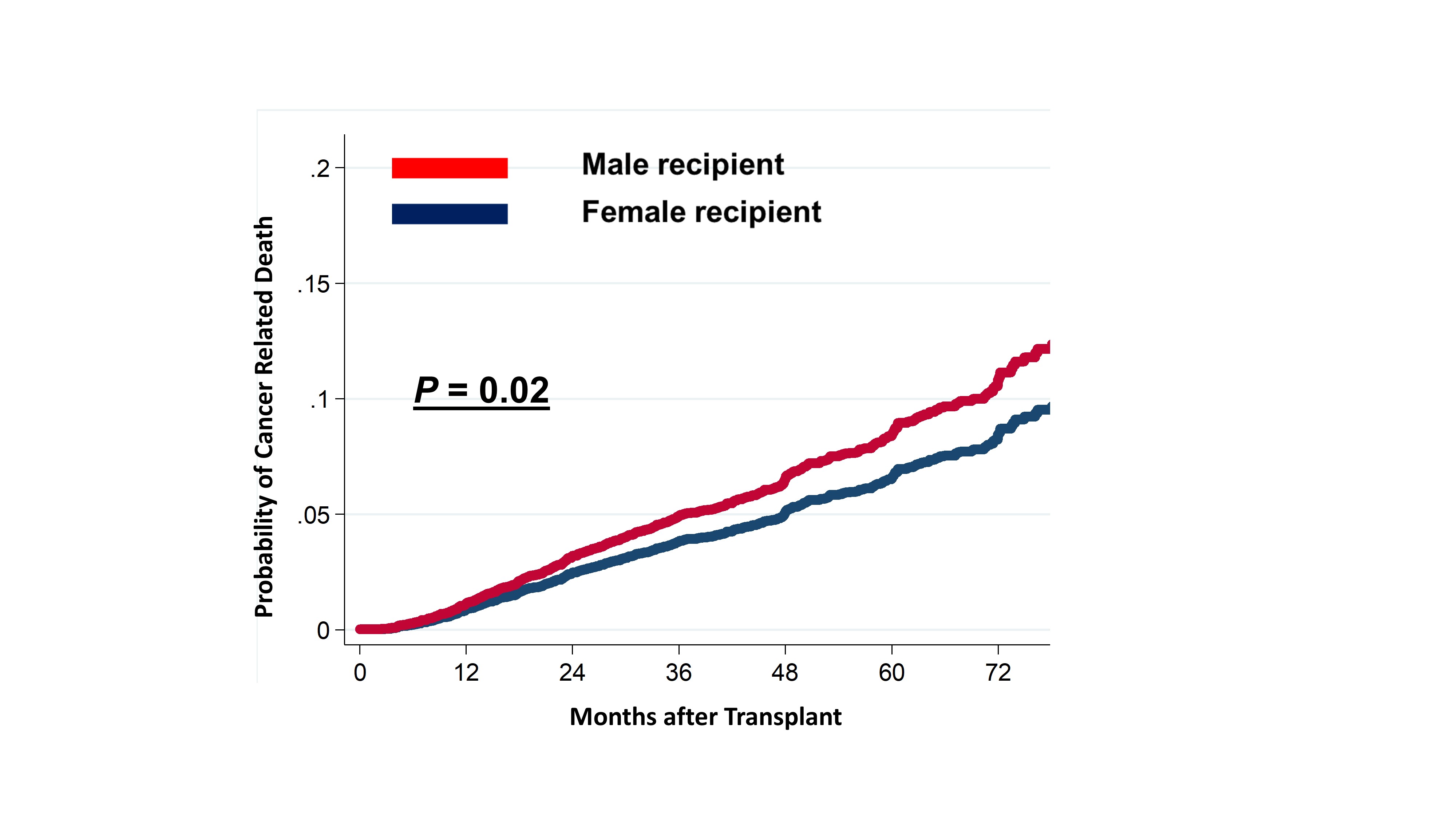The Prognostic Impacts of Recipient Gender in Deceased Donor Liver Transplantation for Hepatocellular Carcinoma
The Cleveland Clinic, Cleveland, OH
Meeting: 2020 American Transplant Congress
Abstract number: A-150
Keywords: Graft survival, Hepatocellular carcinoma
Session Information
Session Name: Poster Session A: Liver: Hepatocellular Carcinoma and Other Malignancies
Session Type: Poster Session
Date: Saturday, May 30, 2020
Session Time: 3:15pm-4:00pm
 Presentation Time: 3:30pm-4:00pm
Presentation Time: 3:30pm-4:00pm
Location: Virtual
*Purpose: Hepatocellular carcinoma (HCC) is significantly male predominant cancer. Sex hormonal signal is considered to play some roles, although exact underlying mechanisms are not fully understood. The aim of this study is to investigate the influences of donor and recipient gender on oncological outcome in liver transplant (LT) for HCC.
*Methods: This study included 8,631adult patients who underwent deceased donor LT for HCC in the US national registry from 2012-2018 (1-year follow up). Donor and recipient characteristics difference according to gender and prognostic influences of recipient gender were evaluated. Cancer-related death was used as prognostic outcome and competing risk regression was used to assess prognostic influences. P<0.05 was defined statistically significant in this study.
*Results: Of 8,631 patients, 6747 were male (78.2%) and 1,884 were female (21.8%). The basic patient and tumor characteristics comparisons between male and female were shown in Table 1. The recipient median age, MELD-Na, and waiting time were clinically similar between male and female although statistically significant due to study scale. Regarding tumor characteristics, although tumor size was clinically similar, tumors in the male recipients had much aggressive tumor characteristics such as higher multiple tumor rate, higher positive vascular invasion rate, and higher poorly differentiation rate. The adjusted cumulative cancer related death rates were plotted according to the recipient gender was shown in Figure 1. The competing risk cox-regression analyses showed that hazard ratio of male gender was significantly higher in the male recipient (HR 1.30 95%CI; 1.05-1.61) (P=0.02).
*Conclusions: The HCC characteristics were significantly aggressive in male recipient and male gender is poor prognostic factor even after adjusting with tumor and recipient/donor characteristics.
To cite this abstract in AMA style:
Sasaki K, Sanghvi M, Fujiki M, Uso TDiago, Eghtesad B, Quintini C, MIller C, Hashimoto K, Kwon CD, Aucejo F. The Prognostic Impacts of Recipient Gender in Deceased Donor Liver Transplantation for Hepatocellular Carcinoma [abstract]. Am J Transplant. 2020; 20 (suppl 3). https://atcmeetingabstracts.com/abstract/the-prognostic-impacts-of-recipient-gender-in-deceased-donor-liver-transplantation-for-hepatocellular-carcinoma/. Accessed February 25, 2026.« Back to 2020 American Transplant Congress


